10th Annual Beat the Blues Week Raises Awareness About Depression and Suicide Prevention
Mental health, depression and suicide are clear and present dangers among college students — but they are rarely discussed. California State University, Northridge has been making efforts to bring an end to the negative stigma around mental health, as well as raising awareness about depression and suicide prevention with the BLUES Project, a peer education volunteer program.
In collaboration with University Counseling Services, Joint Advocates on Disordered Eating (JADE), Project D.A.T.E. (Discovering Alternatives for Today’s Encounters), Men CARE (Creating Attitudes for Rape-Free Environments), Associated Students and the University Student Union (USU), the BLUES Project organized the 10th annual Beat the Blues Week, Nov. 14-17.
This year’s Beat the Blues Week featured speakers, relaxation workshops, film screenings and a mental health awareness parade at the Delmar T. Oviatt Library Lawn, as well as free depression screenings and a resource fair at the Plaza del Sol. The week concluded with a candlelight vigil at the Oviatt Lawn. Some of the highlights of the weeklong event included:
Dear Stress, Let’s Break Up
Steve Silver, a staff psychologist at University Counseling Services, spoke about coping with stress on the college level, Nov. 14 at the USU Lake Balboa room.
“It’s all about balance and to keep an eye on yourself,” Silver said.
Even though Silver mentioned that some stress is positive in terms of staying motivated, he talked about the impact of too much stress and the importance of what he called a healthy “mind platter” — a healthy balance between stress, sleep, exercise, focus time, play time, downtime and socialization.
Coping with Grief and Loss
Psychotherapist Beth Jakubanis, from SoCal Child Therapy, and family therapist Debi Frankle, from the Calabasas Counseling and Grief Recovery Center, talked about coping with grief and loss, particularly the loss of suicide victims, Nov. 14 at the Lake Balboa room.
“There is a fear of talking about it,” Frankle said. “We’re afraid of it [to say suicide], so we don’t talk about it and perpetuate the stigma not to talk about it.”
Yet, Jakubanis added that talking about suicide and grief is important — not only to eliminate the stigma, but also to prevent grief from taking over externally or internally.
“We keep getting told to move on, but the world is just not the same anymore if the person you go to for stability is not there anymore,” Frankle said. “It is important to tell the truth and talk about what is happening.”
LGBTQ Students and D.A.R.K.N.E.S.S.
Amy Rosenblatt, a staff psychologist at University Counseling Services who focuses on CSUN’s LGBTQ community, talked about the different challenges facing LGBTQ students, Nov. 15 in the Lake Balboa room.
The acronym D.A.R.K.N.E.S.S. (Discovering, Alone, Reaching out, Kin, Network, Environments, Social Media and Suicide) highlighted the different challenges and referred to solutions on how young people can overcome them.
“Sometimes, it is like going through adolescence again,” Rosenblatt said.
Improve your Mood with Food
Ellen Bauersfeld, a registered dietitian at the Klotz Student Health Center, talked about improving mood by maintaining a healthy diet, Nov. 16 in the Lake Balboa room.
She stressed the importance of sugar, caffeine and alcohol reduction and drew attention to the consumption of a variety of fruits and vegetables.
“Color matters,” she said. “I want you to think about a traffic light on your plate, every day.”
A healthy diet fosters microbes in the gastrointestinal tract, which produce 90 percent of serotonin in the human body, which enhances mood, she said.
Mental Health and Latino Students
Abraham Ambriz, a student counselor at University Counseling Services, shared his own experiences as a Latino student with a mental health disorder, Nov. 16 at the USU Flintridge Room.
He addressed the issue of masculinity in Chicana/o culture, and the negative stigma that goes along with mental health issues.
“In Latino culture, mental health and depression is taboo,” he said. “I didn’t want to ask for help, call anyone or tell anyone.”
Ambriz, who suffered from anxiety, said he was particularly scared to tell his uncle and father about his issue — but eventually reached out to available resources that helped him handle his anxiety.
Middle Eastern Students and Mental Health
Jennifer Esfandi, a doctoral intern at University Counseling Services with a Persian background, spoke about mental health in Middle Eastern culture on Nov. 17 in the USU Granada Hills room.
She mentioned the significance of family and the notion of bringing shame to the family if one’s mental health is different.
“Family is an important value in Middle Eastern culture — nobody wants to disgrace their family,” Esfandi said. “But mental health issues don’t mean you’re crazy or something is wrong with you. These barriers to seek help just perpetuate the stigma.”
Esfandi shared her experiences with coping with stress in college, as well as some Middle Eastern relaxation techniques that help calm the body and mind — such as drinking tea, burning incense and socializing with loved ones.
For more information on the BLUES Project, visit http://www.csun.edu/counseling/blues-project.

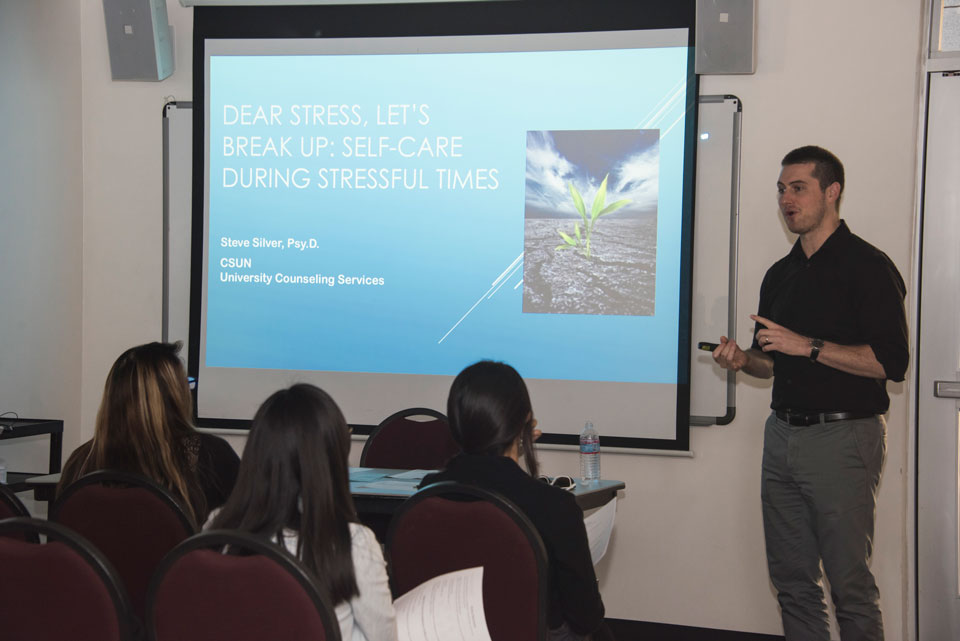
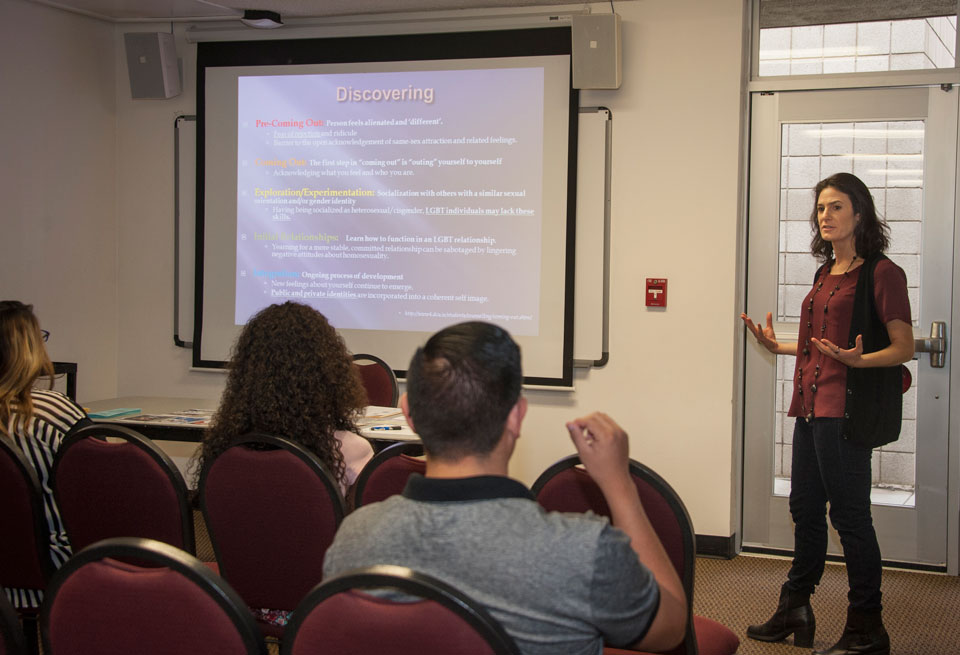
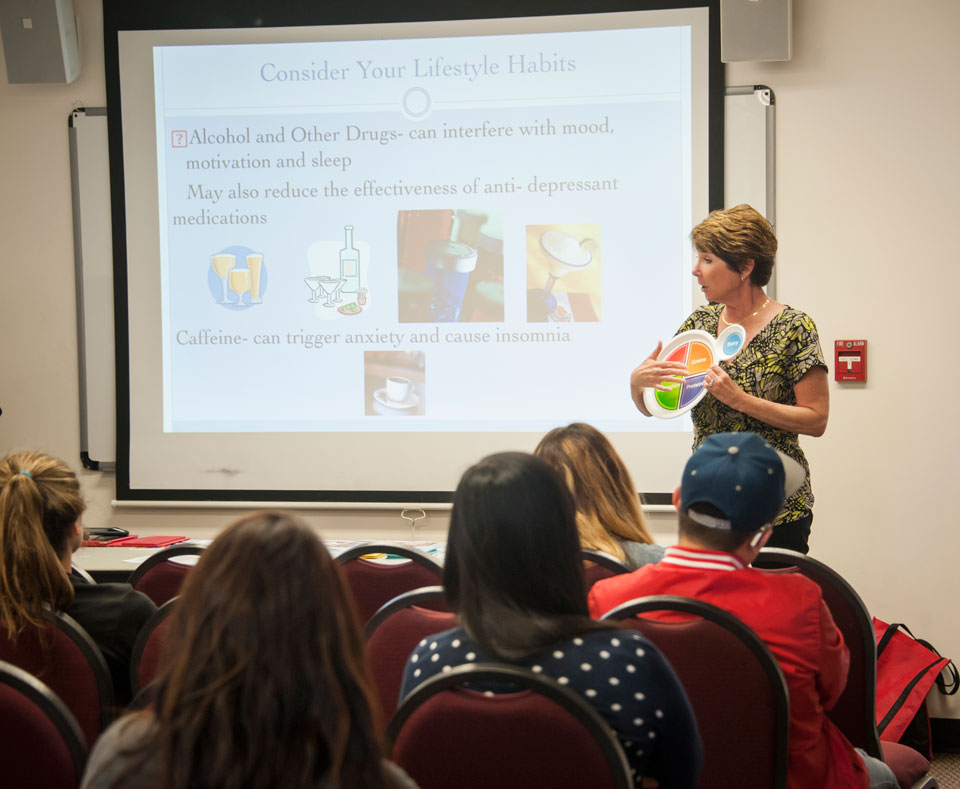
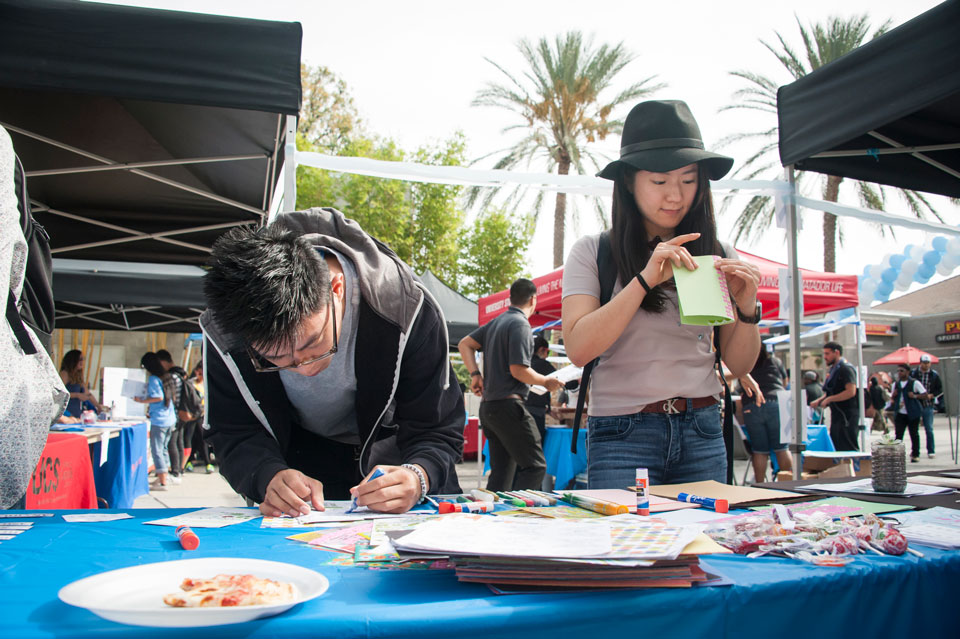
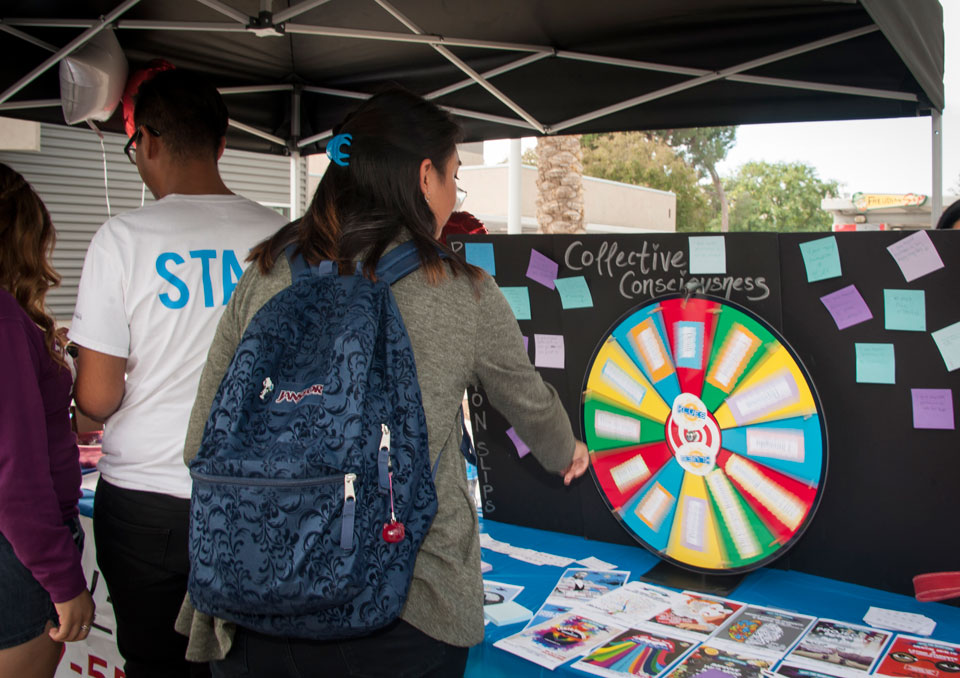
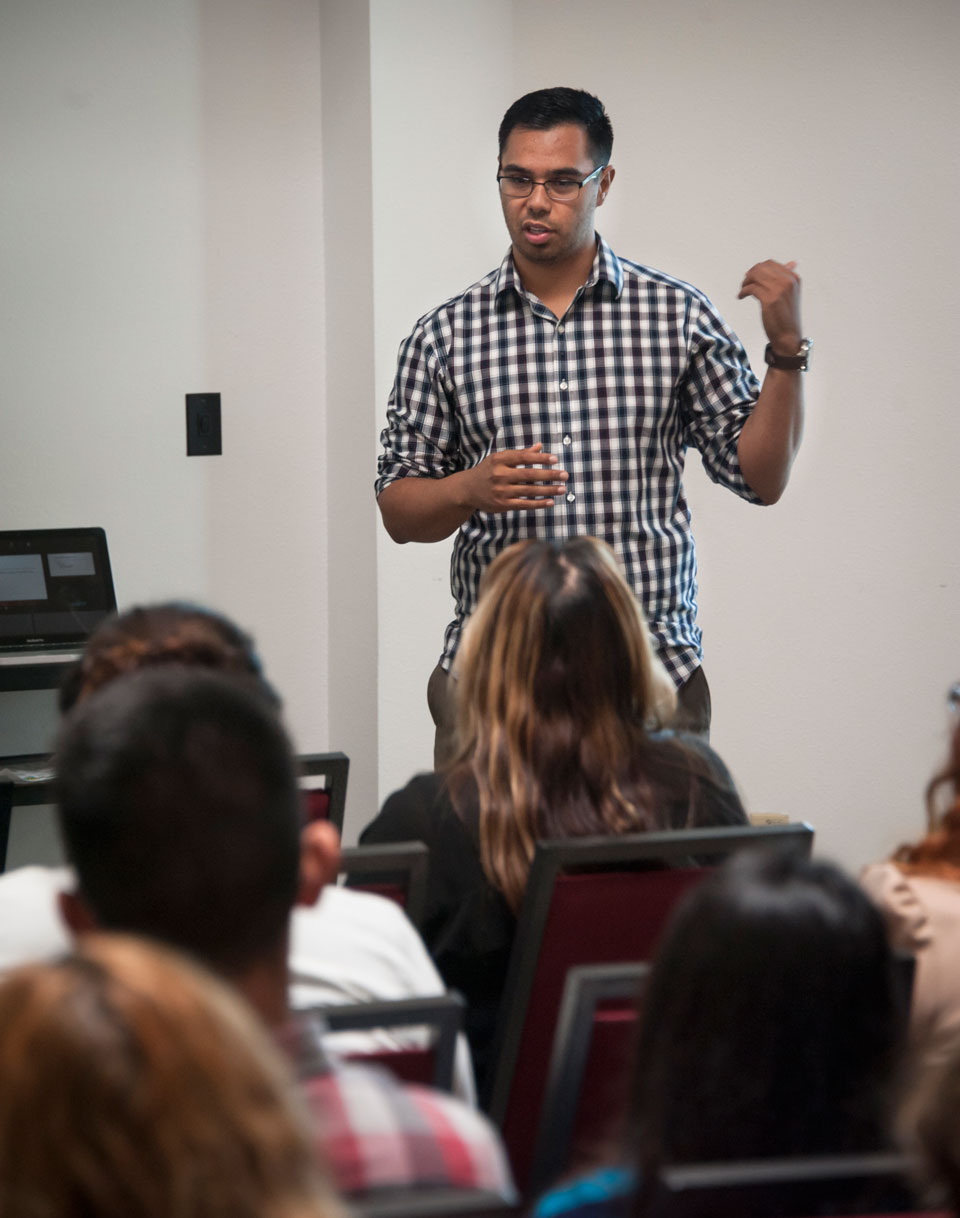
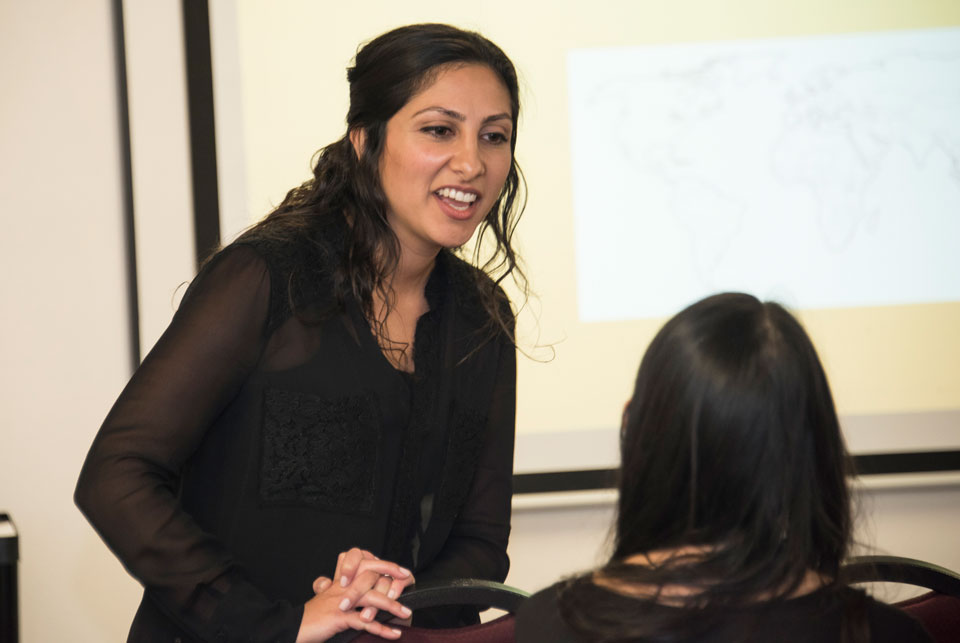
 experience
experience